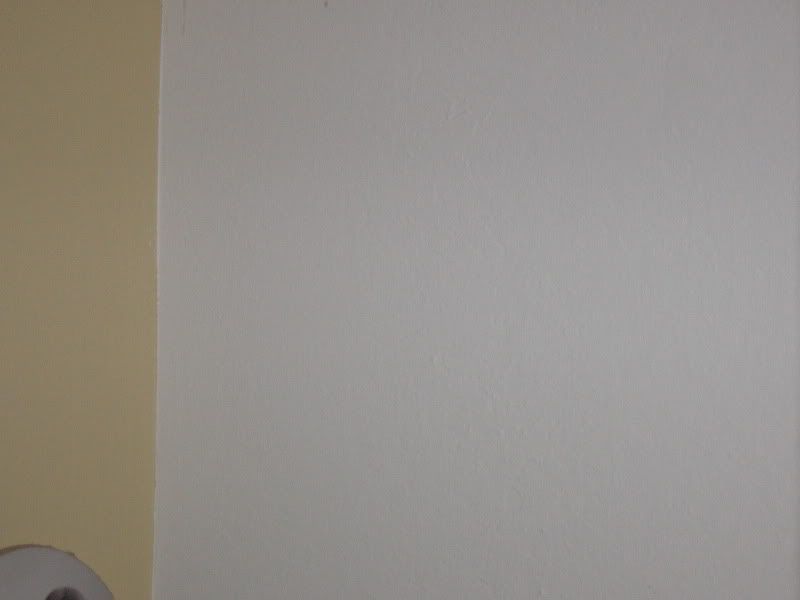I definitely have drywall walls (1955).
I was talking to a friend about the texture. It appears to be hand applied to me. It looks like a gritty mud they spread around.
He suggests it might be plaster (which is different from drywall mud). Plaster cures and mud dries.
I had a joint crack open in my living room ceiling so I re-taped it and spread mud over it a couple of feet wide. Now I need to figure out how to match the texture. It's not the typical spray on texture you see today.
The walls don't look like plaster walls I remember, this stuff is rougher than that.
It's hard to get a good picture of it:
Google for "texture paint"
Get some gritty mud and spread it around, then get some non gritty mud and do the whole ceiling using the high spots for a depth gauge. Probably never get one spot to match the rest anyway, so you might as well plan do the whole thing from the start. Is there lath up there?
jud
no it is drywall.
I'm with Bill - thinking texture paint on drywall.
> The walls don't look like plaster walls I remember, this stuff is rougher than that.
Dave, you know that drywall was typically textured just by rolling on thinned out joint compound, right? The textures you can get will vary depending upon the consistency of the mix and the design of the roller cover. A cover with very short nap and thin texturing mix will produce a very light texture. A cover with thick nap and thicker mix will make a more pronounced texture.
This was the old technology that was replaced by sprayed-on texturing methods.
you can sprinkle in some playground sand. I painted a tennis court on smooth concrete. To put in "normal" tennis court texture we mixed in several scoops of sand in the paint before putting it down.
Call your local out-of-work drywaller and give him the gift of some work. They work cheap these days.
As an amateur, you have NO chance of matching the texture.
Merry Christmas!
I got my painting contractor to create a stucco-look with the usual spray on material, using a knock-down technique with a trowel. It was a pretty quick method, and came out great. As mentioned, either hire a pro for this small job, or make this one wall a little different from the rest of the house. You might notice the difference, but chances are not many visitors will.
Had a leak in the bathroom ceiling a few years ago, ice dams on the roof from my 10 foot rap around porches...change of pitch and non heated surface. I should have done a metal roof, but who knew!!! Anyway I thought a 8 inch wide tounge and groove pine with a groove in the middle would look good...well it went up nice and easy, and looked great. So I moved on into the kitchen, dining room area of the house, and "she" decieded it would look really good with random width rough sawn pine on the walls. Planed on the one side, and some 6" beams on the ceiling by the wood stove. You know I don't have a clue how I used to get all this stuff done with a full time plus job, and 2 kids. Give the pine a look and have a good Christmas!!!
I might just get some plaster from Home Dee-Pot, mix it up and try it. It isn't really all that critical.
I tried spreading some mud and hitting it with an old sock but that is a little too rough, I even let it dry for 15 minutes then knocked it down with a trowel.
> I might just get some plaster from Home Dee-Pot, mix it up and try it. It isn't really all that critical.
>
> I tried spreading some mud and hitting it with an old sock but that is a little too rough, I even let it dry for 15 minutes then knocked it down with a trowel.
I wonder if your texture was dashed on with a fiber brush of some sort. Load the brush up and spatter it on the wall, that sort of technique. Second guess would be a heavy nap roller with a slightly stiff texturing mix that is partially smoothed with a trowel or joint knife.



